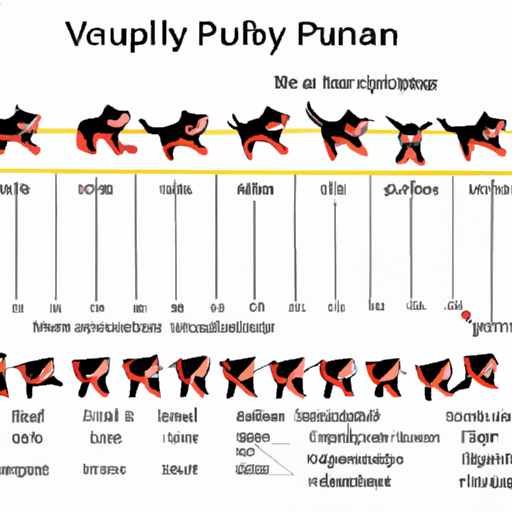As a caregiver for a puppy, you are privy to many exciting milestones in their life. One of the most fascinating, yet often overlooked aspects of puppy growth, is the development of their teeth.
1. Introduction to Puppy Teeth
Just like human babies, puppies are also born toothless. Their teeth gradually grow in over the next several months, at different stages. Understanding this timeline can help you better care for your puppy and alleviate any potential discomfort during this process.
2. When do Puppies start Teething?
Typically, puppies start teething around 2-4 weeks old. This is when the first set of teeth, known as deciduous or milk teeth, start to show.
3. The First Set: Deciduous Teeth
By the time your puppy is about 6 weeks old, all of their 28 deciduous teeth should have grown in. These include:
- 12 Incisors
- 4 Canines
- 12 Premolars
| Type of Teeth | Quantity |
|---|---|
| Incisors | 12 |
| Canines | 4 |
| Premolars | 12 |
4. Losing the Milk Teeth
When your puppy is around 12-16 weeks old, they will begin to lose their milk teeth. This process can sometimes cause discomfort or pain. Providing them with chew toys can help soothe their gums.
5. The Second Set: Permanent Teeth
Around 16 weeks, you will notice the appearance of your puppy’s permanent teeth. By 6 months, most dogs will have a full set of 42 adult teeth.
6. Dental Care for Puppies
As a caregiver, it’s important to ensure your puppy’s oral health. Regular brushing and dental chews can help maintain healthy teeth and gums.
7. Potential Dental Problems
Puppies can encounter several dental issues like retained baby teeth, misalignment, or broken teeth. Regular check-ups with a vet can help identify and treat these issues early.
8. FAQs About Puppy Teeth
1. What if my puppy’s teeth don’t fall out?
If your puppy’s milk teeth don’t fall out to make way for the adult teeth, they might need to be extracted by a vet to prevent complications.
2. When should I start brushing my puppy’s teeth?
You can start brushing your puppy’s teeth as soon as their milk teeth have fully grown in, usually around 6 weeks old.
3. Should I be worried if my puppy is chewing a lot?
Chewing is a natural behavior for puppies, particularly when they are teething. However, excessive chewing can be a sign of discomfort or anxiety.
4. What should I feed my teething puppy?
Soft foods are best for teething puppies. You can also offer them frozen treats to help soothe their gums.
Understanding your puppy’s teeth timeline can be a rewarding part of your journey as a caregiver. Remember, every puppy is different, and these timelines are just averages. Always consult with a vet if you have any concerns about your puppy’s dental health.



